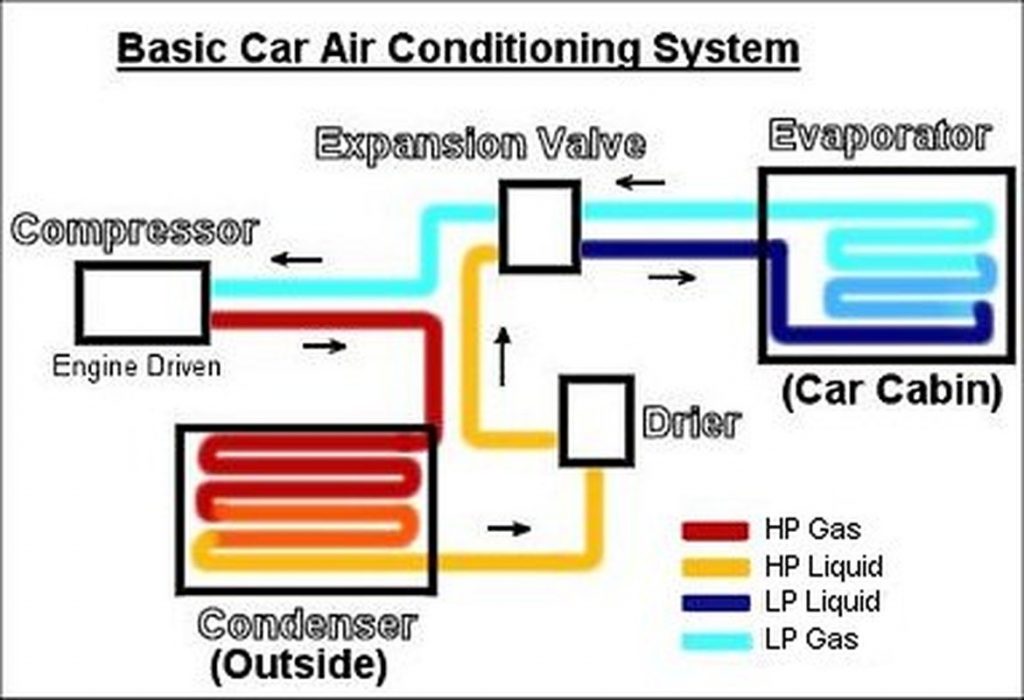Explore the Does Air Conditioning Use Gas Or Electricity In A Car article containing information you might be looking for, hopefully beneficial for you.

Does Air Conditioning Use Gas or Electricity in a Car?
As the sweltering summer sun beats down upon us, many of us reach for the air conditioning in our cars to provide a refreshing respite from the heat. But have you ever wondered how car air conditioning works and what powers it? Let’s dive into the inner workings of automotive air conditioning systems to answer the question: does air conditioning use gas or electricity in a car?
Contrary to popular belief, car air conditioning does not directly use gas. Instead, it relies on electricity to power its components and cool the air inside the vehicle. However, it’s important to note that the electricity is ultimately generated by the car’s engine, which runs on gas. So, in an indirect sense, air conditioning in a car can be said to use gas.
How Does Car Air Conditioning Work?
The car air conditioning system consists of several key components that work together to cool the air inside the vehicle:
- Compressor: Driven by a belt connected to the car’s engine, the compressor pressurizes refrigerant gas.
- Condenser: The high-pressure gas from the compressor passes through the condenser, where it releases heat and condenses into a liquid.
- Expansion Valve: The liquid refrigerant flows through the expansion valve, which reduces its pressure and temperature.
- Evaporator: The low-pressure refrigerant then enters the evaporator, where it absorbs heat from the air inside the car, cooling it.
The cooled air is then blown into the car’s interior by a fan, providing a refreshing breeze that helps keep you comfortable on hot days.
Benefits of Using Air Conditioning in Cars
- Comfort and Convenience: Air conditioning allows you to maintain a comfortable temperature inside your car, even on the hottest days, making your driving experience more enjoyable.
- Improved Air Quality: Air conditioning filters the air entering the car, removing pollen, dust, and other allergens, improving air quality and reducing respiratory problems.
- Reduced Fatigue: When you’re comfortable, you’re less likely to feel drowsy or fatigued while driving, enhancing your safety on the road.
- Prevents Heat-Related Illnesses: In extreme heat, air conditioning can help prevent heat-related illnesses such as heat exhaustion and heat stroke.
Tips for Using Air Conditioning Efficiently
- Park in the Shade: When possible, park your car in the shade to reduce the amount of heat that enters the vehicle, making it easier for the air conditioner to cool the cabin.
- Use the Recirculation Button: The recirculation button prevents outside air from entering the car, reducing the amount of heat and humidity that needs to be cooled.
- Turn off the Air Conditioning When Not Needed: When leaving your car unattended or driving at lower speeds, turn off the air conditioning to save energy.
Frequently Asked Questions
- Q: Can air conditioning damage my car?
A: No, properly functioning air conditioning will not damage your car. However, it’s important to have your air conditioning system serviced regularly to ensure it’s working efficiently. - Q: Why does my air conditioning blow warm air?
A: This can be caused by several factors, including low refrigerant levels, a faulty compressor, or a clogged condenser. If your air conditioning is blowing warm air, it’s best to have it inspected by a qualified mechanic. - Q: Can I replace my car’s air conditioning system myself?
A: Replacing an air conditioning system is a complex task that should be undertaken by a trained technician. Attempting to replace it yourself could result in damage to your car.
Conclusion
In conclusion, while car air conditioning does not directly use gas, it relies on electricity generated by the car’s engine, which runs on gas. Understanding how car air conditioning works and using it efficiently can enhance your driving experience and ensure a more comfortable and safe ride, especially during the hot summer months.
Are you interested in learning more about car air conditioning and other vehicle maintenance topics? Leave a comment below, and we will be happy to provide additional information and address any further questions you may have.

Image: www.carparts.com
Does Air Conditioning Use Gas Or Electricity In A Car has been read by you on our site. Thank you for your visit, and we hope this article is beneficial for you.